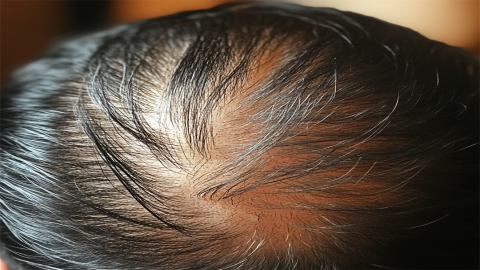What to do about naturally thin hair
Congenitally thin hair may be caused by genetic factors, poor follicle nutrition, alopecia areata, androgenetic alopecia, hyperthyroidism, and other conditions, which can be improved according to different situations. It is recommended to visit a hospital promptly and receive treatment under the guidance of a physician.

1. Genetic factors: The density of hair is largely influenced by genetics. If there is a family history of thin hair or hair loss, individuals may be more prone to having thin hair. It is recommended to improve lifestyle habits, maintain regular作息 (作息 translates as作息 time or daily routine), balanced diet, and adequate nutrient intake.
2. Poor follicle nutrition: A lack of essential nutrients to the hair follicles can cause hair to become fine, soft, and easily broken, thereby appearing sparse. Use shampoos, conditioners, hair masks, and other products containing nourishing ingredients to provide additional nutrition to the hair. Perform scalp massage to promote blood circulation in the scalp and enhance the follicles' ability to absorb nutrients.
3. Alopecia areata: This condition is typically related to immune system dysfunction, where the immune system mistakenly attacks the hair follicles, causing damage and preventing normal hair growth. Patients usually do not experience pain or other discomfort, but rather sudden hair loss resulting in round or oval bald patches. It is recommended to follow medical advice and use medications such as anthralin ointment, halometasone cream, or clobetasol propionate cream to alleviate symptoms.
4. Androgenetic alopecia: This type of hair loss may be associated with genetic predisposition and hormonal levels. Increased sensitivity to androgens in individuals leads to gradual miniaturization of hair follicles and shortened growth cycles, ultimately resulting in thinner hair. It is recommended to use medications such as finasteride tablets, minoxidil gel, or spironolactone tablets under medical supervision to improve the condition.
5. Hyperthyroidism: This condition is typically associated with excessive secretion of thyroid hormones. Excess thyroid hormones accelerate the transition of the hair growth cycle, causing large amounts of hair to prematurely enter the telogen (resting) phase and fall out, often accompanied by symptoms such as weight changes and mood swings. Patients may follow medical advice to use medications such as Prunella vulgaris granules, Xiaojin Pills, or Yikang Pills to relieve discomfort.
Maintaining good lifestyle habits and a positive mindset can also help improve the condition of thinning hair.




